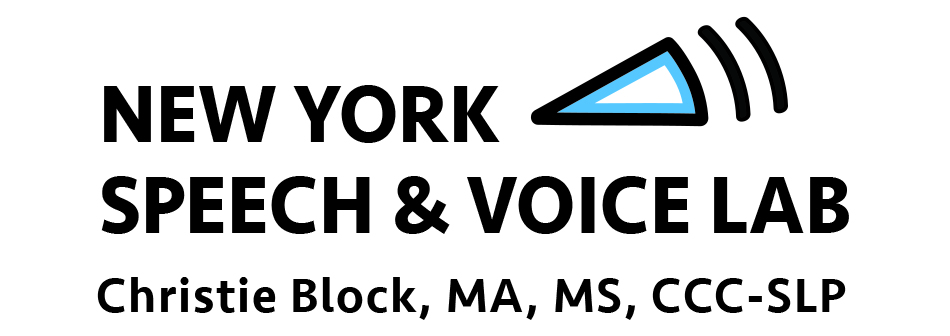Voice is more than pitch. It involves intonation (how we move our pitch around), stress patterns (how we bring out the meaning), or resonance (how big or small our voices sound). These and other factors can shape how we and our voices are perceived gender-wise. This is why a person can have a low pitch but still somehow be perceived as feminine even when taking testosterone.
Does this describe you? Are you on testosterone but still feel unsatisfied with your voice? The pitch may not have dropped enough or there may be other ways you are still using your voice that can be perceived as feminine.
-- Resonance: Try a yawny voice. One common complaint I hear from transmasculine clients is sounding younger than they are, despite having a low pitch from testosterone. In most of these cases, even though the vocal folds have been fattened by testosterone, the space in the head and neck, which colors the sound of the voice, remains the same size. One voice technique that can be useful is to try to speak in a yawny voice. Drop your jaw and make a loud yawn-like sigh “ha!” a number of times. Then try “hey-hey-hey!” “ho-ho-ho!” “go-go-go!” These types of sounds, when done well, can produce a tone that is darker and bigger, which can nicely supplement a lower pitch for a more masculine voice. Think of it as adding just a tinge of Darth Vader (without acting like him)! If that’s hard to do on your own, just moving your mouth more can help you sound louder and less muffled.
-- Intonation: Try aiming straight-ahead when excited. Another common complaint is sounding too high, feminine, or girly when being excited, laughing, or kidding around with friends. This is usually because, even though your pitch may have dropped overall, you are still over-using some of the higher pitches that are still there. A simple way to address this is to aim your gaze and your pitch straight-ahead towards a medium range when you are excited, which puts the highest words at middle pitches rather than high in the sky. Can you actually do that in the moment of excitement? Sometimes yes, sometimes no. But it’s possible, if you practice enough ahead of time, for your brain to learn to enact this new technique in real life. So, actually practicing “no way!” or “I can’t believe it!” while aiming straight-ahead can be a good first step.
-- Get professional help. These and other techniques can help round out a voice on testosterone, or modify a voice without testosterone. Though it takes commitment and work, voice training can help you reach your full vocal potential. And many times it only takes a few sessions! A voice therapist can also address temporary hoarseness, throat discomfort, or difficulty being loud, which can result from taking testosterone.
-- Get a baseline test. The best case scenario is to get a consultation with a voice therapist early on to document your voice and make an informed decision about how to proceed. It gives you the opportunity, if interested, to do a few sessions to prevent any vocal health problems and immediately start modifying your voice before and as testosterone kicks in. At the very least, you will have more information about how testosterone may affect your particular voice and get help later if issues arise.
Bottom line: It’s a myth that testosterone addresses all aspects of the voice. For many people, it lowers the pitch well and is enough to feel satisfied and be gendered correctly, without having to work at it. But for many other people, it isn’t enough. While testosterone can physically change your vocal instrument, it’s up to you to learn how to play it.

